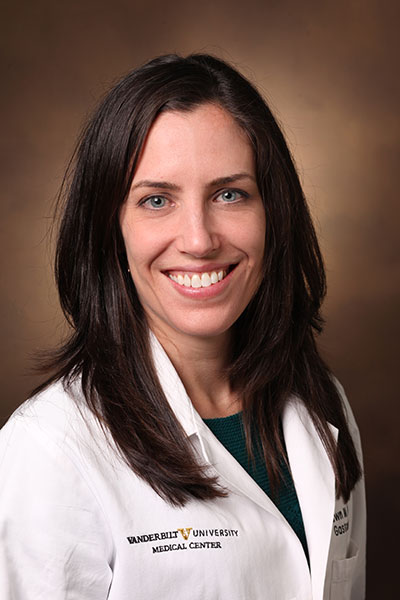Condition requires a long-term, continuous care model to prevent health complications and promote wellness
As the only clinic in the Southeast focused completely on celiac disease, Vanderbilt’s Celiac Disease Clinic takes a multidisciplinary approach to support their patients’ disease management. By bringing together physicians, nurses, registered dietitians, pharmacists and a psychologist, all with special training in nutritional health, the clinic provides comprehensive and personalized care.
Treating celiac disease, a disease in which the body’s immune system is stimulated by gluten, requires a continuous care model to prevent health complications. Patients with celiac disease need long-term management to support their physical and mental wellbeing, said Dawn Adams, MD, MS, director of the Vanderbilt Celiac Disease Clinic.
“We provide education and nutritional counseling to help patients with celiac disease adjust to a gluten-free lifestyle. Then we retest them at regular intervals to make sure the small intestine is healing. These patients have a higher predisposition to developing other autoimmune disorders and nutritional deficiencies, and we’re able to monitor for those, as well,” Adams said.
Celiac Disease Clinic

Research Activities
Adams also led research into a catheter-based tool for celiac disease diagnosis early in 2019. Instead of taking a biopsy of the small intestine to confirm a celiac disease diagnosis, specialists in Vanderbilt’s Digestive Disease Center measured the function of the duodenal mucosa.
Researchers used the catheter-based mucosal impedance (MI) technology, which was originally developed for esophageal applications at VUMC, to measure duodenal impedance in patients to help diagnose the disease.
“We needed better diagnostic tools for celiac disease,” said Adams. “Currently, we have to biopsy the small intestine to definitively diagnose adults. It is invasive, and they must be consuming gluten before the test. The MI catheter may allow us to diagnose earlier and find mucosal changes that are not seen on biopsy.”
The Vanderbilt Celiac Clinic is also participating in multi-center clinical trials that are looking at new drugs that can treat celiac disease. “This is a very exciting time in the celiac community—there is a possibility we will soon have other treatment options for a patient outside of or in conjunction with the gluten-free diet,” said Adams.
The Vanderbilt Celiac Disease Clinic has been recognized by the Society for the Study of Celiac Disease (SSCD) for its combination of patient care and dedication to research.
Refer a patient
The Celiac Disease Clinic partners with referring providers to support the long-term health care needs of patients with celiac disease. To refer a patient for treatment or inquire about a trial, call (615) 936-1288.
Celiac Disease Clinic
Providers
Dawn W. AdamsMD, MS
- Celiac Disease, Gastroenterology, Gastroenterology, Hepatology and Nutrition, Nutritional Deficiencies and Weight Loss
